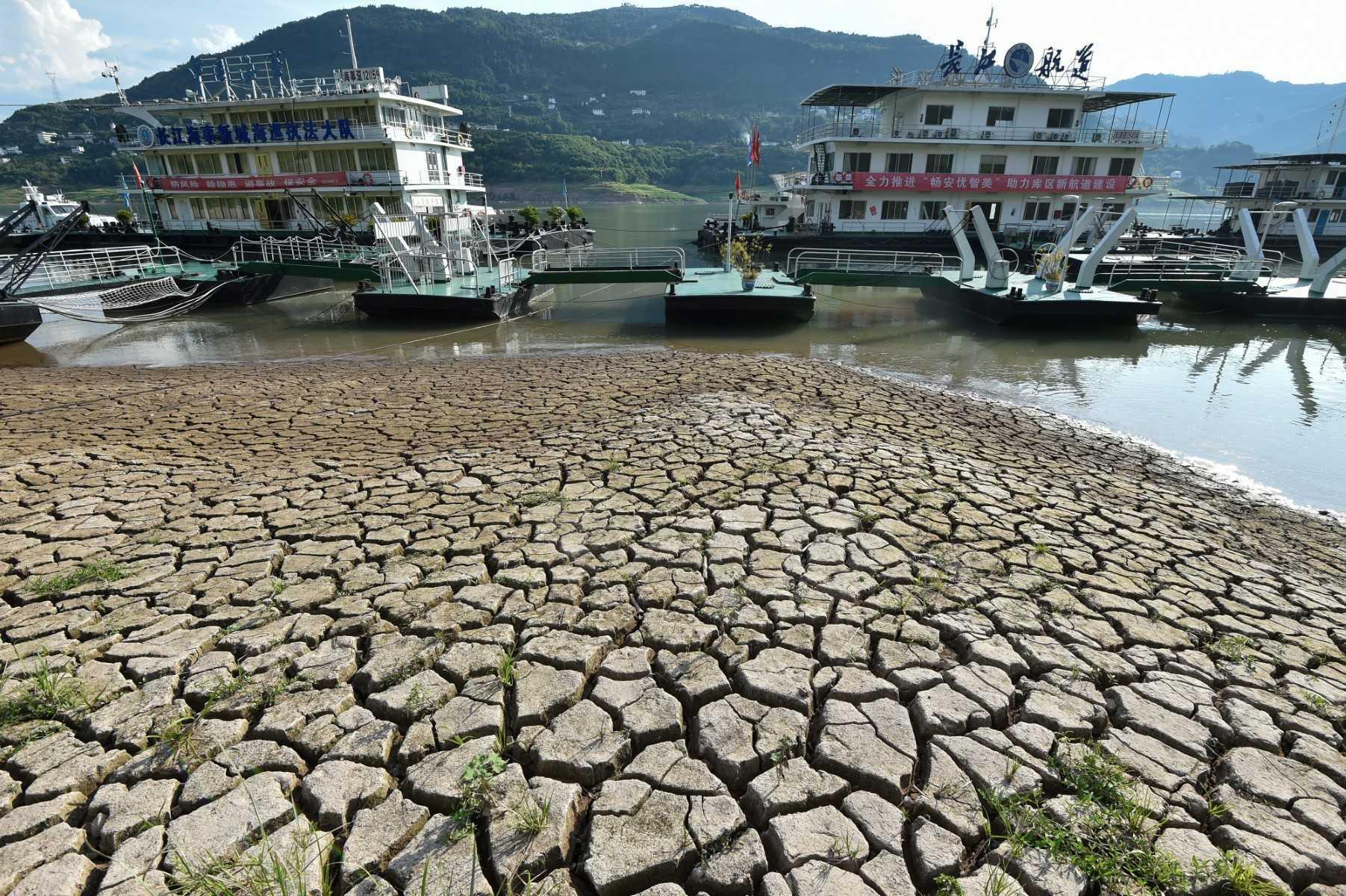As harvest time looms, China tells farmers to replant or switch crops
More than 70 days of extreme temperatures and low rainfall have wreaked havoc along the basin of the Yangtze, which supports more than 450 million people as well as a third of the country's crops.
Just In
As China's record heatwave starts to subside, farmers are assessing the damage caused by a prolonged drought and the government is urging them to replant or switch crops where they can.
More than 70 days of extreme temperatures and low rainfall have wreaked havoc along the basin of the Yangtze, which supports more than 450 million people as well as a third of the country's crops.
Though rain is expected over the coming 10 days, farmers near the depleted Poyang Lake in central China's Jiangxi province, normally a flood outlet for the Yangtze, worry that the heat has already done too much damage.
The agriculture ministry in an emergency notice on Tuesday called on farmers to harvest and store rice and take action to strengthen grain growth in coming weeks. In areas where the drought has already inflicted heavy damage, farmers are encouraged to switch to late-autumn crops like sweet potatoes, but that is no easy task.
"We can't switch to other crops because there's no land," said Hu Baolin, a 70-year old farmer in a village on the outskirts of Nanchang, Jiangxi's provincial capital.
He said his plants, including rapeseed oil and sesame, were far less developed compared to normal years, and his pomelos were just a third of their usual size.
Nearby wells were severely depleted, and a gaggle of geese milled around a pond that had completely dried up around 10 days ago. Villagers had also been battling a brush fire nearby.
"Don't let people see it and think I brought you here on purpose. You can go anywhere you like (in this village), it's all the same."
The agriculture ministry said on Tuesday that the hot weather posed a "serious threat" to autumn grain production and urged local governments to "do everything possible" to find more water.
Drones were deployed in the worst hit province of Sichuan in China's southwest on Thursday to seed clouds and induce rain, while other regions along the Yangtze have been mobilising firefighters to spray parched crops, state broadcaster CCTV said.
Analysts saw rice production as the most vulnerable.
"I think the biggest impact of the heatwave is going to be on the rice crop - corn also has issues but not that much," said Ole Houe, director of advisory services at agriculture brokerage IKON Commodities in Sydney.
China, the world's biggest rice consumer and importer, was already expected to import a record 6 million tonnes in 2022/23, according to estimates from the US Department of Agriculture.
Power curbs extended
Chongqing and Sichuan province in the southwest are reeling after more than two weeks of temperatures in excess of 40 Celsius (104 Fahrenheit) - causing crop damage, forest fires and power rationing.
Factories in Chongqing were originally ordered to restrict output from Aug 17 until Aug 24 in order to save power, but curbs have now been extended and normal operations will not resume until weather conditions improve and authorities approve restarts.
Although national forecasters reduced their heat alert level from "red" to "orange" from Tuesday, temperatures are still expected to exceed 40C in some places in Chongqing, neighbouring Sichuan and other parts of the Yangtze delta until the weekend.
Low rainfall has also affected the Yangtze's lower reaches, including Zhejiang and Jiangsu on the eastern coast.
Water levels at Lake Tai, sandwiched between the two provinces, have fallen to their lowest in 20 years despite the diversion of 500 million cubic metres of Yangtze river since mid-July, the Ministry of Water Resources said on Thursday.
China's water ministry said on Aug 11 that the drought had already affected nearly 33 million mu (22,000 square kilometres) of arable land and 350,000 livestock, but the final impact is likely to be far bigger.
Subscribe to our newsletter
To be updated with all the latest news and analyses daily.
